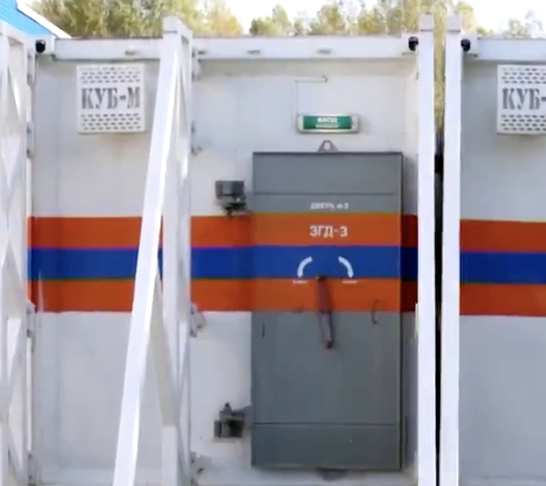Russia has initiated the mass production of mobile bomb shelters known as “KUB-M” designed to offer protection against multiple hazards, including nuclear blasts. These shelters can withstand shockwaves, radiation, and other threats like shrapnel, debris from collapsing structures, chemical hazards, and fires.
Each unit looks like a fortified shipping container and can accommodate up to 54 people, providing safety for up to 48 hours.
— Mario Nawfal (@MarioNawfal) November 19, 2024
RUSSIA STARTS BUILDING NUCLEAR-RESISTANT SHELTERS
Russia has started mass-producing KUB-M mobile bomb shelters, designed to protect against nuclear shockwaves, radiation, and conventional threats for up to 48 hours.
These shelters, which house 54 people and resemble… pic.twitter.com/siFfrOKwDZ
This development comes in the context of heightened geopolitical tensions, particularly following decisions by the U.S. to allow Ukraine to use American long-range missiles against targets in Russia.
The Russian authorities have not explicitly linked this production increase to any current crisis. However, this move comes as Russia revises its nuclear doctrine, with President Vladimir Putin yesterday approving a new official doctrine to lower Russia’s threshold for using nuclear weapons.
Under the new policy, Moscow reserves the right to respond with nuclear weapons to conventional attacks that threaten its sovereignty, especially those involving nuclear-backed adversaries.
The decision was made after the U.S. greenlit Ukraine’s use of long-range missiles, enabling strikes deeper into Russian territory.
“The mobile shelter is a multifunctional structure that provides protection for people from various threats, including natural disasters and man-made accidents,” the research institute said, calling it “an important step towards improving the safety of citizens”.
It can easily be transported on a truck and connected to water supplies, and can also be deployed in Russia’s vast northern permafrost, it added.

Remember, Putin has often issued threats that were not followed through. For instance, in 2022, he cautioned that supplying Ukraine with British Storm Shadow missiles would provoke Russian retaliation against new targets. This threat was never carried out.
Similarly, other so-called Russian “red lines” concerning Western military equipment like tanks, F-16 jets, and HIMARS systems were crossed without triggering the anticipated nuclear repercussions. Typically, Putin’s reaction has been to intensify attacks on civilian areas in Ukraine.
